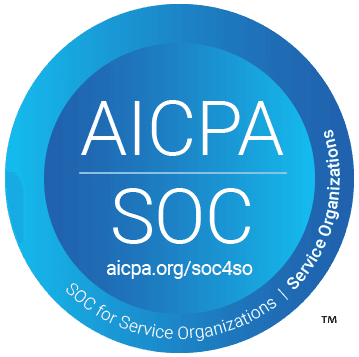Glossary
Your go-to glossary for ISSB reporting, FiSM, Scope 1/2/3, and CSRD compliance.
API (Application Programming Interface)
A software intermediary that allows systems to connect and share data. Used in FiSM to sync accounting data with sustainability systems.
Assurance (in ESG)
A process by which ESG disclosures are independently verified. FiSM enables high-assurance audits, up to an “unqualified opinion,” similar to financial audits.
Audit Readiness)
A process by which ESG disclosures are independently verified. FiSM enables high-assurance audits, up to an “unqualified opinion,” similar to financial audits.
Audit Trail
The state of having all ESG and sustainability data fully traceable, standardized, and validated — ready for third-party assurance or internal audit review. With FiSM, audit readiness is built in: every disclosure is backed by ledger-grade traceability and automated controls.
Carbon Accounting
The process of quantifying greenhouse gas emissions to understand a company’s carbon footprint. FiSM broadens this to include more environmental and social impact categories.
CSRD (Corporate Sustainability Reporting Directive)
EU law requiring standardised sustainability disclosures.
Double-entry Accounting
An accounting principle where every financial transaction affects at least two ledger accounts to maintain balance. FiSM applies this to sustainability metrics for audit traceability.
Double Materiality
A concept that expands materiality to include both financial materiality (impact of ESG risks on the company) and impact materiality (impact of the company on society and the environment). neoeco enables Double Materiality Assessments through OSMA and FiSM-aligned workflows.
ERP (Enterprise Resource Planning)
Integrated software systems that manage and automate core business processes, often including accounting, procurement, project management, and supply chain operations.
FiSM (Financially-integrated Sustainability Management)
A methodology that embeds sustainability data into financial systems, enabling organisations to treat ESG metrics with the same precision, auditability, and strategic importance as financial data.
Financial-grade Sustainability Data
Sustainability data that is treated with the same structural rigour, traceability, and audit standards as financial data.
Financial Materiality
The concept that sustainability factors (e.g., climate risks) can impact financial outcomes and should therefore be disclosed in financial statements.
Financial-Sustainability Linkage
The practice of directly connecting ESG data (e.g., carbon footprint, water use) to financial impacts (e.g., costs, risks, revenue), a core feature of FiSM.
Green Bond Reporting
The process of documenting how funds raised through green bonds are allocated to environmentally beneficial projects, often aligned with frameworks like ICMA or the EU Taxonomy. neoeco’s FiSM platform supports pre- and post-issuance reporting and eligibility tracking for green finance instruments.
Green Capital
Funding mechanisms (e.g., green bonds, sustainability-linked loans) designed to support environmentally and socially responsible investments.
Green Ledger
An early attempt to integrate sustainability into financial systems. Unlike FiSM, these often lacked standardisation, integrity, or lifecycle coverage.
Hybrid Dynamic FIS Ledger
A new ledger format in FiSM that integrates financial and sustainability data at the transaction level, supporting real-time reporting, granularity, and auditability.
IFRS S1 & S2
Global sustainability disclosure standards focused on financial relevance.
ISAE 3000 / ISAE 3410 / ISSA 5000
Audit and assurance frameworks for non-financial (ESG) reporting.
ISSB (International Sustainability Standards Board)
A global standard-setter for sustainability disclosures, under the IFRS Foundation. neoeco enables full ISSB compliance with IFRS S1 & S2.
LCA (Life Cycle Assessment)
A methodological framework for assessing environmental impacts associated with all stages of a product’s life—from raw material extraction to disposal.
LCC (Life Cycle Costing)
An analysis method evaluating all costs associated with the lifecycle of a product, including acquisition, operation, and disposal.
Ledger (Accounting Ledger)
A comprehensive record of financial transactions that supports the preparation of financial statements. In FiSM, ledgers are extended to include sustainability metrics.
LCSA (Life Cycle Sustainability Assessment)
An advanced form of Life Cycle Assessment that includes environmental (LCA), economic (Life Cycle Costing), and social (Social LCA) impacts of a product or service across its entire lifecycle.
ISSB (International Sustainability Standards Board)
A global standard-setter for sustainability disclosures, under the IFRS Foundation. neoeco enables full ISSB compliance with IFRS S1 & S2.
Limited Assurance
A moderate level of confidence provided by auditors, typically involving less extensive evidence gathering than a full audit.
Metadata
Structured information about data (e.g., source, timestamp, transaction ID) used in FiSM to ensure traceability and compliance. FiSM raises the bar by supporting workflows aligned to reasonable assurance and unqualified audit opinions.
Open Source Materiality Assessment (OSMA)
A new approach (used by FiSM) that goes beyond surveys to assess ESG materiality through real-world impact and stakeholder context.
Reasonable Assurance
A high level of audit scrutiny requiring sufficient evidence to conclude disclosures are free from material misstatement. neoeco’s compliance workflows are designed to meet this standard for ESG and climate disclosures under ISSA 5000
Scope 1, 2, and 3 Emissions
Scope 1: Direct GHG emissions from owned/controlled sources.
Scope 2: Indirect emissions from purchased energy.
Scope 3: All other indirect emissions in the value chain (e.g., supplier activities, product use).
Social LCA
An assessment of social and socio-economic aspects of products and their potential positive or negative impacts on stakeholders.
Stakeholder Engagement
An assessment of social and socio-economic aspects of products and their potential positive or negative impacts on stakeholders. In FiSM, stakeholder context is embedded into materiality workflows and captured as part of the audit trail.
TCFD (Task Force on Climate-related Financial Disclosures)
A global framework for climate-related risk reporting. neoeco automates TCFD-aligned data collection, scenario analysis, and reporting.




